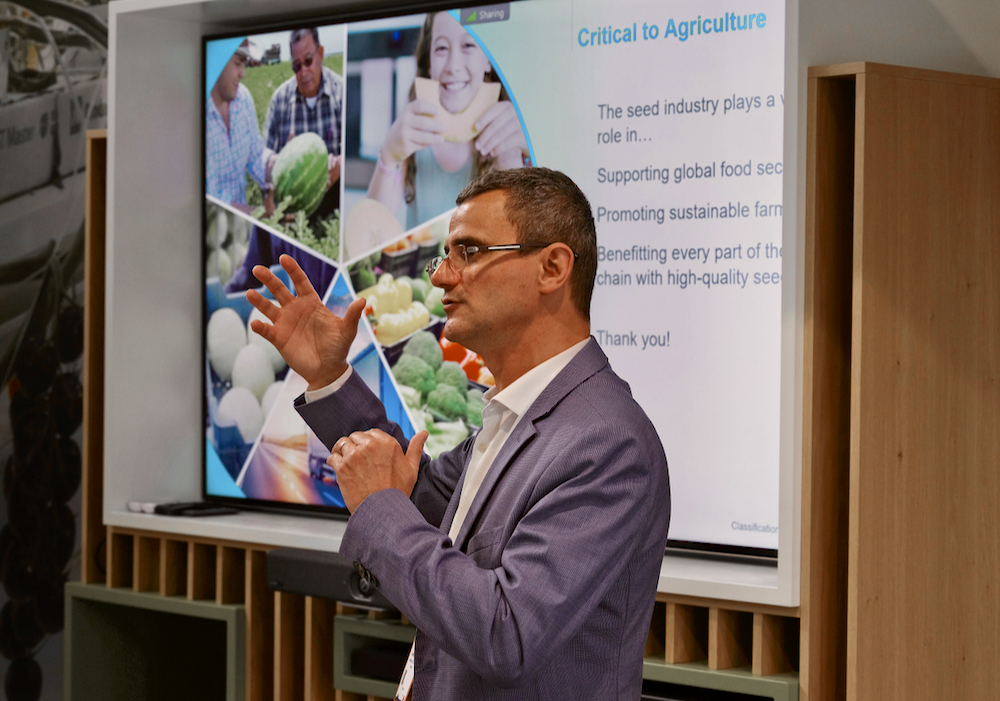Push for more hog processing intensifies after Quebec closures

Reduced hog processing in Quebec has forced the redirection of thousands of Ontario hogs to U.S. and Manitoba processing plants. The change has increased shipping costs for Ontario producers and increased disease risk in the province.
Read Also


Tomato virus prompts race for resistance
Tomato breeders are racing to breed resistance to the Tomato Brown Rugose Fruit Virus. It emerged first in Israel in…
Why it matters: Shipping hogs outside the province is more expensive for farmers and the economic contribution of value-added processing is lost.
Olymel shut one of its largest hog processing facilities in Quebec at Vallée-Jonction at the end of 2023.
The Quebec government created a sow-reduction plan and a commission created to manage that plan has required remaining processors to accept only Quebec hogs.
Thousands of Ontario hogs that would have been shipped to Quebec now have to be processed elsewhere.


photo:
John Greig
The change in Quebec highlights the shortage in hog processing spaces in Ontario, which has been significant since Quality Meats went bankrupt in 2014.
The hogs are mostly going to the United States, but some are also moving to Manitoba, said Blair Cressman, director of the sales division at Ontario Pork.
There are significant transportation costs involved to move hogs further for processing, said Tara Terpstra, chair of Ontario Pork and a Huron County pork producer. She recently shared that concern with Rob Flack, Ontario’s Agriculture, Food and Agribusiness minister, who recently toured the Ontario Pork Congress and met with farm groups.
“I would say the direct costs are definitely on the backs of our producers,” says Terpstra. “It was estimated to be over $73 million more associated with transportation costs.”
There were 2.7 million hogs shipped out of Ontario for processing in 2023, she said.
In a recent Farmtario interview with Flack, he mentioned hog processing as an area that needs work.
“I’d like to see us have a more robust and larger pork processing sector in Ontario. To support our processors, we need to process our own pigs right here in Ontario,” he said.
Terpstra said she told Flack there were lost opportunities in value-added processing when hogs produced here are moved elsewhere for processing.
Despite the challenges of moving hogs to the U.S., there are willing processors there, said Cressman, especially the Clemens Food Group in Coldwater, Michigan.
“That’s been a pretty viable solution for a lot of hogs every week.”
There’s need for 20,000 to 25,000 processing spaces for hogs each week, said Cressman.
“There are some processing opportunities that are developing and that’s some good news but it doesn’t happen as quickly as some would like.”
Disease challenges
The movement of more hogs to the U.S. has challenged the industry with more disease, in a spring when hog disease has been widespread. Trucks move more pigs into the U.S., where hogs are mixed and disease status is poor. They then return to Canada after being exposed to American pigs.
Those trucks often carry disease, said Greg Wideman, a swine veterinarian with South Western Ontario Veterinary Services. American truck washes often recycle their wash water, which also increases the risk of disease, especially to porcine epidemic diarrhea and delta coronavirus, he said.
“The U.S. infrastructure remains highly contaminated with PED and delta (coronavirus),” he says.
– With files from Kristy Nudds
Source: Farmtario.com

